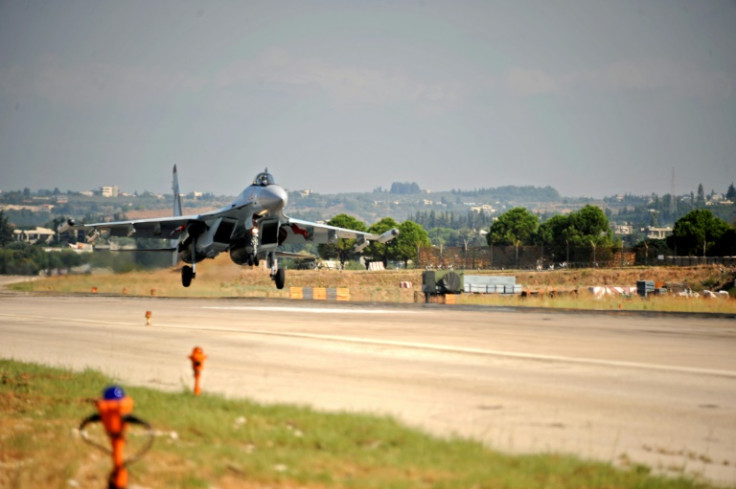Iran To Get Su-35 Fighter Jets From Russia As Part Of Defense Collaboration
KEY POINTS
- Acquisition of Su-35s is a significant enhancement for Iranian Air Force
- Western Intelligence indicated Iranian pilots are already training with Russian-made jets
- Some of the jets are to be stationed at Tactical Air Base 8 in the Iranian city of Isfahan
Iran is all set to receive an entire squadron of Sukhoi Su-35 fighter jets from Russia, as the two countries continue to strengthen economic and defense cooperation, defying Western sanctions.
Tehran will soon receive 24 of the fourth-generation twin-engine, super-maneuverable Sukhoi Su-35 fighter jets, The Cradle reported Wednesday.
Some of these Su-35 jets are expected to be stationed at the Iranian air force's Tactical Air Base (TAB) 8 in Isfahan, according to Tasnim news agency. Western Intelligence indicated that Iranian pilots are already training with Russian-made jets.
The deal with Iran for 24 jets was originally intended for Egypt, Times of Israel reported, citing Channel 12. However, since Washington thwarted the deal with Cairo, Moscow was looking for a new potential buyer. Meanwhile, Iran was considering the purchase of the Su-35s. local Iranian media said in September.
"The purchase of the Sukhoi 35 from Russia is being considered by the Air Force," Iran's Air Force chief Hamid Vahedi reportedly told Borna news agency.
Primarily used for air superiority missions, the Su-35 is a significantly improved version of the Su-27 and was proposed as a replacement for Su-27 and MiG-29. The acquisition of the Su-35 will serve as a significant enhancement for the Iranian air force.
Except for a few Russian MiG-29 Fulcrum fighters that Iran purchased in the 1990s, the country has not procured any modern fighter aircraft recently, according to The Cradle.
In addition to the MiG-29, Iran utilizes a locally modified F-4 Phantom II, F-14 Tomcat, and F-5E/F Tiger II aircraft from the 1970s that were supplied by the U.S. to the then Pahlavi regime before the 1979 Islamic Revolution.
Amid Western-led efforts to isolate Russia with sanctions for its invasion of Ukraine, Moscow has tried to build relationships with non-Western countries to help its economy. Meanwhile, Tehran, which is facing its own set of sanctions from the West, is looking for partners in the East to challenge what it calls the Western-led "hegemony."
Western and Ukrainian intelligence officials have repeatedly accused Iran of supplying drones and missiles to Russia for its war in Ukraine, a claim that has been denied by both Moscow and Tehran.
Meanwhile, Washington accused Moscow of providing advanced military assistance to Tehran, including air defense systems, helicopters, and fighter jets, in return for Iranian weapons. Officials in the U.S. also believe that Iran is seeking Russia's help to bolster its nuclear program.

© Copyright IBTimes 2024. All rights reserved.






















